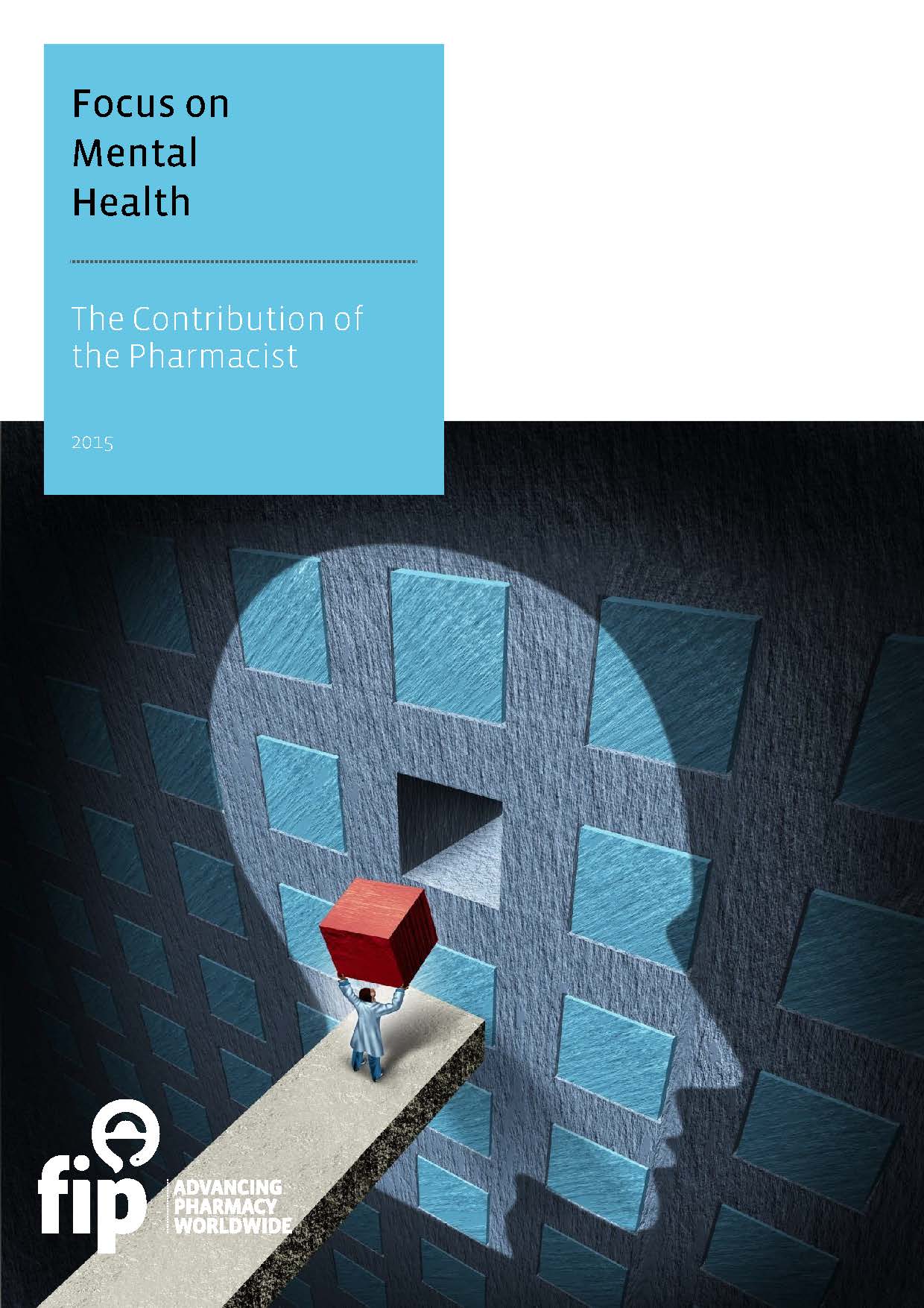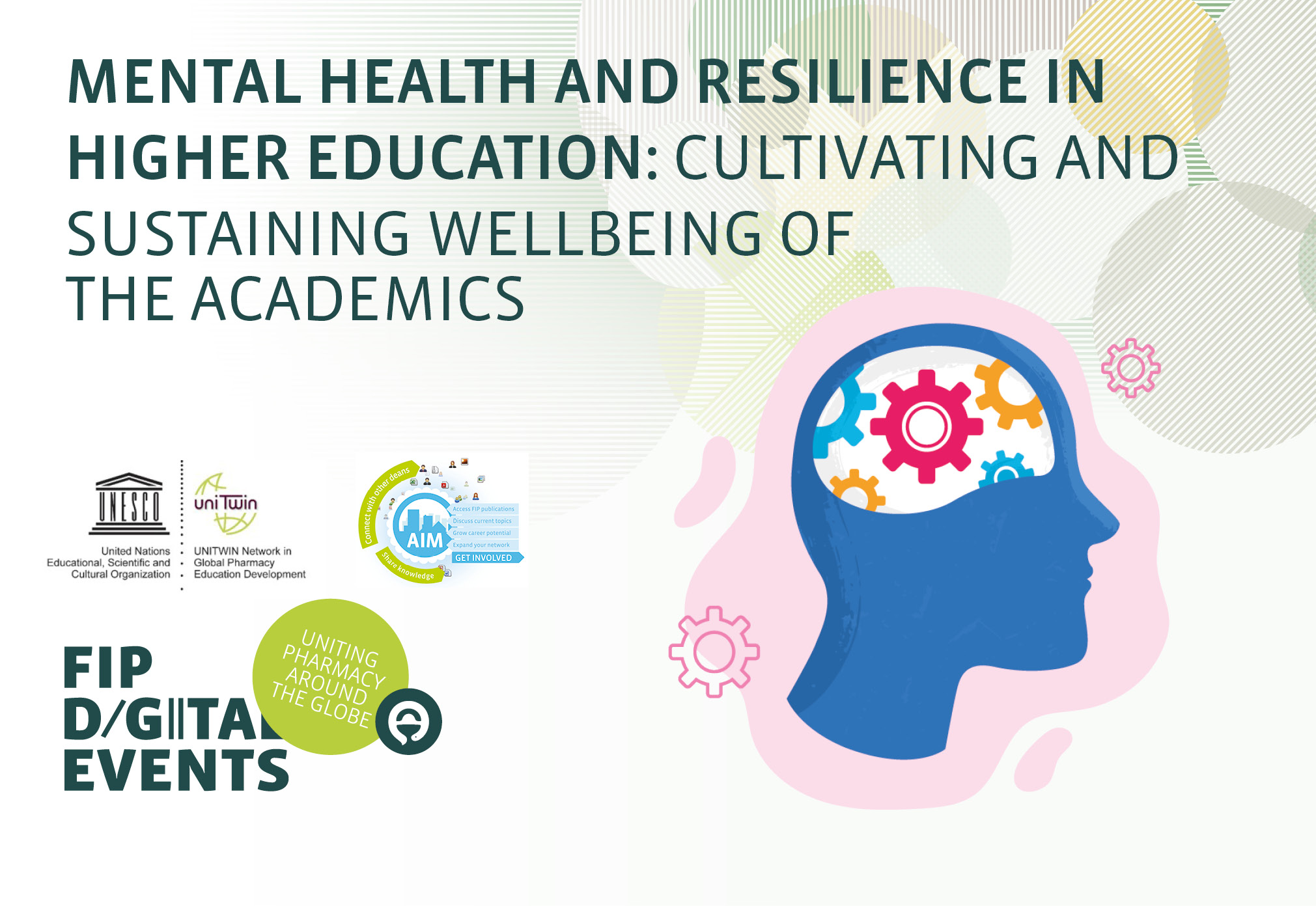
Mental health care: A handbook for pharmacists (2022)

Knowledge and skills reference guide for professional development in mental health care (2022)
This guide, which is a companion to the FIP mental health care handbook for pharmacists intends to provide an overview of the knowledge and skills needed for pharmacists to deliver mental health services and care

精神健康全程管理: 药师手册 (2022)
这本手册是与国际专家组合作编写的,旨在支持药学实践,介绍药剂师可以采取的许多潜在的精神卫生保健行动,从预防精神疾病和症状筛查到优化药物治疗和应对精神健康危机。

精神健康全程管理中药师专业发展的知识和技能参考指南 (2022)
本指南是 FIP 《药剂师心理保健手册》的配套指南,旨在概述药剂师提供心理保健服务和护理所需的知识和技能。

The complex, multidimensional nature of academic resilience
Professor Paul Gallagher is Deputy Head-Clinical at the Department of Pharmacy of the National University of Singapore, Member of the FIP Academic Institutional Membership (AIM) Committee, and Member of the of the FIP Global Pharmaceutical Observatory Commission.
For some time, Goh Joo Hin, a company from here in Singapore, used the faces of top students to publicise New Moon Essence of Chicken, a concoction used as a study supplement. The advertisements were seen everywhere, from newspapers to bus stops. Now, it is reported, that the company may have to look elsewhere for its models. Shortly before the release of primary school graduation examination results in December, the Ministry of Education (MoE) said it would stop releasing the names of top-performing students in a move to curb stress on students. This move is welcome but the question that appears not to have been asked is how can MoE support teachers to be more resilient in working in such stressful environments?
Modest attention, indeed, has been paid to academic resilience not only here in Singapore but also internationally. From scholarly work to policy documents, academic resilience appears underrepresented and undervalued. It is only more recently during COVID-19 that academics’ perceptions of ‘a resilient employee’ in higher education gained ground. But what is a resilient academic? In a recently published study1, resilient academics are viewed as being flexible, adaptable, emotionally-resilient, collaborative, empathetic, and open-minded. They are perceived as quick responders, digitally literate, organized, prepared, and creative thinkers. Given that such resilient academics are instrumental to the quality of pharmacy and pharmaceutical sciences education how then should be support our academics to be resilient? Cognisant of the importance of the question, the Academic Institutional Membership recently (January 24th, 2022) undertook a much welcome digital webinar entitled “Mental health and resilience in higher education: Cultivating and sustaining wellbeing in academics”. If you haven’t been able to join the webinar, you may click here and see the webinar under the events/webinars tab.
This webinar, introduced by Dean Pierre Moreau (Chair AIM), had three expert pharmacist academic speakers-(Dr.) Betty Exintaris (Monash University), (Dr.) Illkay Alp Yildirim (Istanbul University) and (Provost) Neil MacKinnon (Augusta University, USA). It was quickly evident from her talk that Dr. Yildirim was an exemplar resilient academic as she employed the novel technique of bi-directional feedback to effectively reduce the stress of her pharmacology students and her own stress. Dr. Exintaris reminded us early in her talk that “that we should not be thinking of resilience as an inherent personal trait but both internal factors and external resources can help individuals to manage difficulties and to bounce back and thrive”. Dr Exinataris elaborated to provide practical examples of not only individual responses to being more resilient during the pandemic (e.g. daily coffee meetings with a colleague to agree what the actions to the pandemic might be on a daily basis) but also a Monash university wide grass roots movement (Her Research Matters) to support early career female academics, and the establishment of a pharmacy workforce support network (GRiT). Provost Mac Kinnon re-emphasised this multidimensional multilevel understanding of resilience by providing us with ten strategies which varied between individual responsibilities (Strategy 1: Be proactive about your mental health), institutional initiatives (Strategy 4: Counter social isolation e.g. creation of affinity groups within the University) and wider higher education system ecosystem actions (Strategy 6: Approach external events differently).
Coming away from this webinar I had a practical and valuable understanding of academic resilience as “the dynamic process and interaction between an academic and their everchanging environment that uses available internal and external resources to produce positive outcomes in response to different contextual, environmental, and developmental challenges”2. This emerging definition of academic resilience, which the Seminar embodied, synthesizes both individual and environmental factors whilst prioritizing protective factors. In many ways this definition of academic resilience brings us back to the old meaning of a university as a not being a collection of individuals but a community of scholars who watch out and care for each other and take protective measures to ensure our collective well-being.
1: Dohaney, J., de Roiste, M., Salmon, R.A., & Sutherland, K. (2020). Benefits, barriers, and incentives for improved resilience to disruption in university teaching. International Journal of Disaster Risk Reduction, 50, 4.
2 Elizer Jay de los Reyes, Joanne Blannin, Caroline Cohrssen & Marian Mahat (2022) Resilience of higher education academics in the time of 21st century pandemics: a narrative review, Journal of Higher Education Policy and Management, 44:1, 39-56
Please contact aim@fip.org if you have any comments or questions.

Beating non-communicable diseases in the community: The contribution of pharmacists (2019)
This reference paper provides global evidence to advocate, nationally and internationally, for an expanded role for pharmacists in NCD management by compiling best practices and examples. It also encourages pharmacists around the world to act upon NCDs.

The role of pharmacists in non-communicable diseases (2019)
This FIP statement of policy renews the commitment of the profession to the optimal prevention, detection and care of patients living with NCDs. It replaces the 2006 FIP Policy Statement on the role of the pharmacist in the prevention and treatment of chronic diseases.

Focus on mental health: The contribution of the pharmacist (2015)
This briefing document presents different activities for mental health promotion and mental illness prevention and care pharmacists are involved in.




